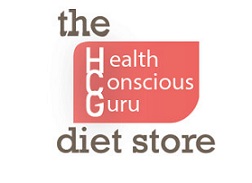Categories
Categories
Anxiety Got You Down? Try These Tips
Posted by on

We all get anxious now and then but if you're anxious more often than not, a discussion with your doctor may be in order. Anxiety disorders can cause unpleasant panic attacks, unsettling phobias, and social anxieties. Signs of an anxiety disorder include excessive worrying that reduces your quality of life, sleep problems, constant muscle tension, and feelings of panic, fear, or uneasiness.
While medication and psychotherapy can dramatically improve your quality of life by addressing both biological brain function and unhealthy thought patterns respectively, many people are reluctant to rely on medication and psychotherapy may not be an option if your insurance policy doesn't cover it.
Thankfully, there are a number of ways you can reduce your anxiety on your own. These helpful tips can help you reduce both environmental anxiety on the spot and chronic anxiety over time.
Breathe Deeply. Deep breathing immediately reduces stress hormone levels in your body and it targets other physiological responses to anxiety and stress, including muscle tension, heart rate, and blood pressure. The 4-7-8 deep breathing technique was developed by Dr. Andrew Weil, the father of integrative medicine, and it can be done anytime and anywhere.
First, put the tip of your tongue against the back of your upper teeth, and keep it there during the exercise. Exhale through your mouth, making a whooshing sound. Close your mouth, and silently inhale through your nose for a count of four. Hold the breath for a count of seven. Exhale completely, making the whooshing sound again, for a count of eight. Repeat three times, several times a day, including when you're feeling particularly anxious.
Meditate. Daily meditation has been shown through a large body of research to not only help reduce stress and anxiety, but also to help you cope better with them for the long-term. Starting your day with 10 or 15 minutes of quiet meditation can dramatically improve your anxiety levels. To meditate, simply sit quietly and comfortably, eyes closed. Focus entirely on your breath as it moves in and out of your body. When thoughts come into your head, imagine that they're balloons filled with helium, and let them gently float out of sight. With regular practice, clearing your mind and focusing only on your breath will become easier.
Take Better Care of Yourself. Anxiety can lead to poor self-care, including feeding your anxiety with unhealthy comfort food and spending too much time hiding under the covers. Eating healthy and exercising every day will go a long way toward reducing your anxiety, especially when you reduce or remove caffeine, sugar, and processed foods from your diet. What you eat affects body and brain function, and exercise naturally reduces stress hormones and leaves you feeling calmer, stronger, and healthier.
Challenge Your Negative Thoughts and Beliefs. Negative thoughts lead to negative emotions and these increase anxiety and lead to negative behaviors. Pay attention to your thought patterns and emotions. When you find yourself thinking negative thoughts, such as "I'm going to blow my presentation," or "I can't do anything right," realize that these thoughts are not based on reality, and spin them toward the positive.
Practice Gratitude. Our minds are tricky beasts and anxiety can overtake us and make us feel like everything is a disaster. But taking the time every day to think about what we're grateful for can be a powerful tool against the incorrect and unhealthy beliefs we hold that tell us that everything is awful. Once you start paying attention to the things that are good and going right in your life, this point of view can dramatically improve your overall feelings of anxiety.
 Loading... Please wait...
Loading... Please wait... 